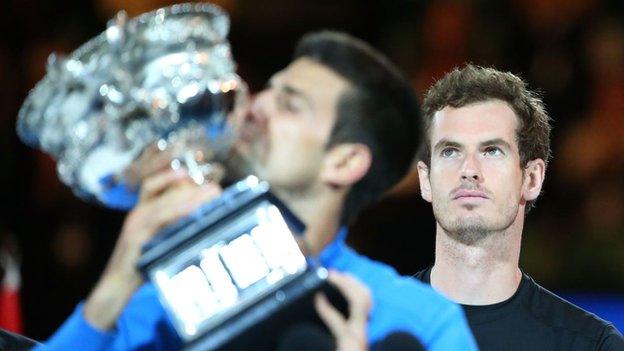Celtic v Rangers: Old Firm game lacked its usual edge
- Published
The return of the Old Firm game hardly caused Hampden to reverberate.
Most of the elements were present, but even the pageantry lacked its typical edge.
Mercifully, there was not a malevolent side to the occasion, and the encounter passed without significant trouble, with 19 arrests made in and around the stadium.
There were two flare-ups between players on the pitch, but it seemed almost a case of going through the motions.
The spectacle resembled an Old Firm game. The blue and green swathes of Hampden, the narkiness of some of the songs that ventured into offensive territory, and also the goading; all were redolent of the rivalry.
It sounded forceful as the players took to the field, but the competitive gap between the two sides reduced the encounter to something curious rather than gripping.
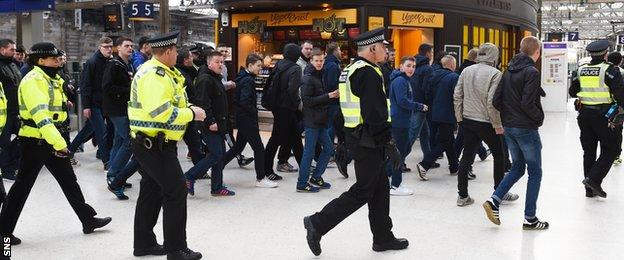
There was a large police operation throughout Glasgow before and after the match
Leigh Griffiths' opening goal, after just 10 minutes, merely established the state of the game that had been expected: Celtic were better equipped to win, and Rangers had to set about coping with that.
Telling moments followed. Rangers' Lee Wallace could not always cope with the striding menace of Mikael Lustig; Scott Brown increasingly bossed the midfield, playing with a swagger, certainly, but also a feistiness that left one or two opponents grounded and in pain; and during the first-half, when Celtic took control of the scoreline, Kris Commons managed to motor away from Ian Black in midfield with barely a glance behind him.
Conceding the early goal caused Rangers alarm. The team had to come to terms with the fear that Celtic might steamroller them.
It was not until after the interval, when John Daly replaced Fraser Aird and Rangers had a presence up front to build their play around, that they found some attacking resolve.
It was always formless, though, because they finished the game without having landed a shot on target throughout the 90 minutes.
Quality was a casualty of the pitch and perhaps the weight of the occasion. There was no mistaking the powerful aplomb of Commons' strike to double Celtic's advantage after half an hour, but grace and poise tended to be absent.
It was telling that Celtic, having taken the lead and feeling comfortable with the way they could deal with Rangers, did not have a meaningful effort on target themselves after the break.
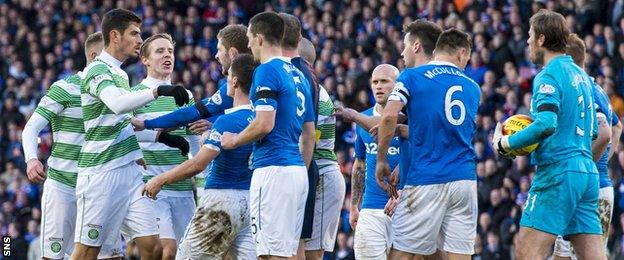
The almost obligatory Old Firm on-field spats were fewer in number and not as intense as before
There were uncompromising moments - Lee McCulloch and John Guidetti both treated opponents at times as obstacles to knock aside - but no suspense.
Once in front, there was never any feeling that Celtic would let their assurance slip, even when Rangers were more adventurous after the break.
Taunts were shared among the crowd. Celtic fans, inevitably, suggested that "you're no' Rangers any more", which was met with ironic jeers. The two rivals will always find new ways to express the antagonism, but the feelings themselves are age old.
The encounter did not reveal anything unexpected. Celtic had the better players and more coherent game plan: Rangers looked like a team full of individuals lacking belief and drive. One club is stable and ambitious, the other is struggling to comprehend what has become of its soul.
Rangers fans wanted more from the game, but might have expected less and many consider the more important contest to be the one that lies ahead between the current board and those who want to take control.
For Celtic, as manager Ronny Deila celebrated with the fans afterwards and the players embarked on a lap of honour, at one side of Hampden at least, the sense remains of a work in progress.
This was a no-win game for the manager, in the sense that Celtic were expected to triumph comfortably, given Rangers' circumstances and state of disarray.
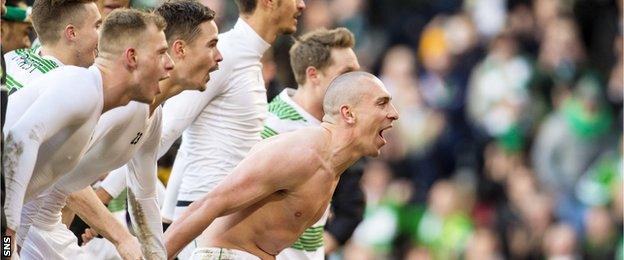
The Celtic players celebrate at full-time as they reach the Scottish League Cup final
They did the job, with an element of professionalism. The pitch was a limiting factor, although Celtic still seem some way short of the side that Deila wants.
The game itself lacked accomplishment, and previous meetings between the sides have been more frenetic, but this latest meeting delivered only a sense of displacement.
It was an Old Firm game, but without the riveting edge of one in which both sides have the measure of each other.
Celtic will come away with the notion of progress being made; Rangers are left to wonder when coherence and vision will return to the decision-making at the club.
Brown sauntered around the pitch in the second-half, and left Black looking helpless as he scurried around. The Celtic captain knew that he had the command of the pitch by then.
When Rangers' Kenny Miller left the field to be replaced by Nicky Clark, he shook his head grimly in resignation.
The symbolism was evident. Hampden was full, the willingness was evident, and the rivalry will one day be fully restored. That moment is not now, though.
Deila spoke afterwards of pursuing the treble. Rangers are chasing something more profound: a future.
Former Rangers director Dave King arrived in Glasgow on Saturday, but did not attend the game, watching it instead on television.
The scope of the work that needs to be done at the club is now clear, from events on the field to the money the directors chose to borrow from Mike Ashley, whose associates currently run the club.
The story of the Old Firm continues to evolve.
- Published1 February 2015
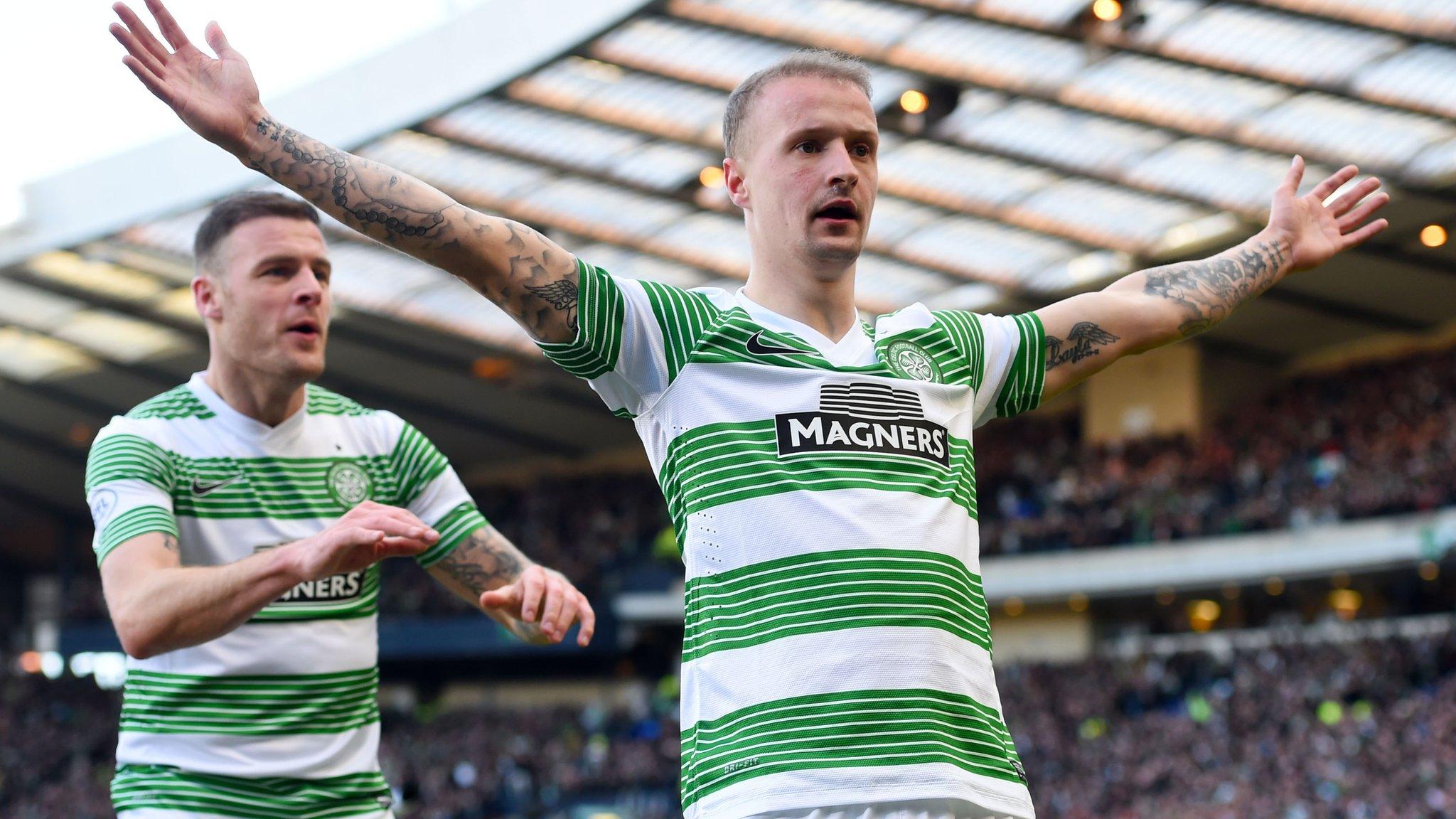
- Published1 February 2015
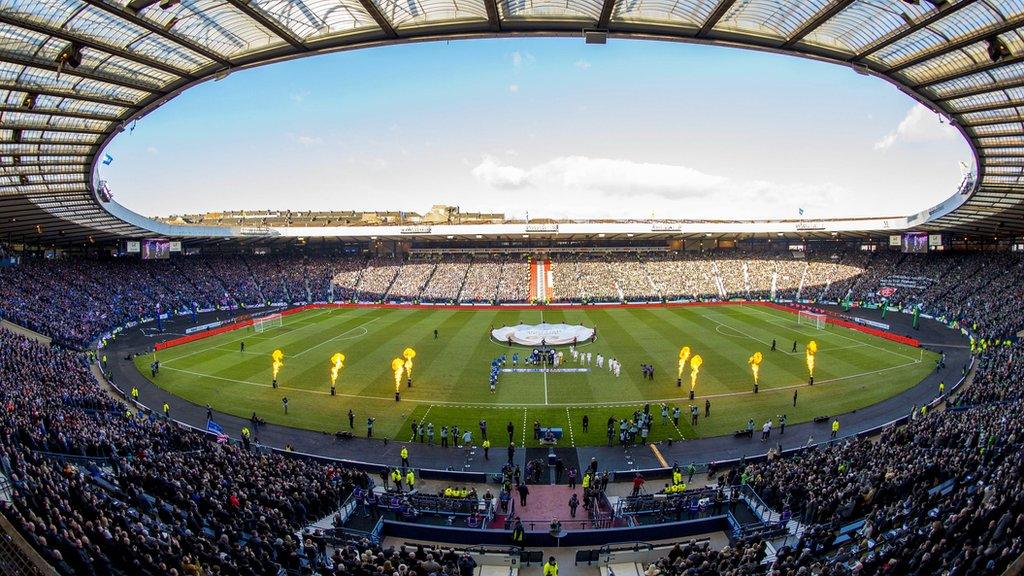
- Published1 February 2015
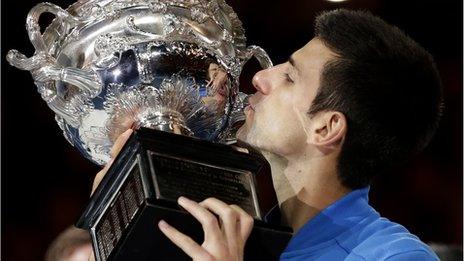
- Published1 February 2015
